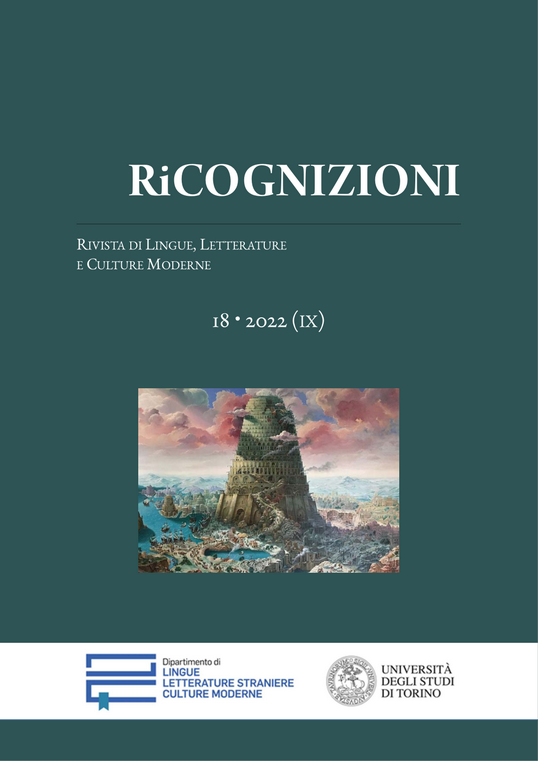Bullismo e cyberbullismo nella letteratura
Rileggendo il “Törless” di Robert Musil: un’anticipazione?
DOI:
https://doi.org/10.13135/2384-8987/7020Parole chiave:
Robert Musil, Törleß, Pensiero debole, (Cyber)BullyingAbstract
This paper analyzes the representation of bullying in literature, focusing on the story told in Musil’s Die Verwirrungen des Zöglings Törleß (1906). The analysis focuses on the behavior of the victim and his observer, showing how identification with the fate of the bullied person is the conditio to sharpen the observer's cognitive and critical skills, which are useful in spurring the victim to react proactively and effectively to the bullying suffered. Törleß’s ‘second sight’ – a key principle for understanding the complexity of the real, grounded in the idea of the “vivisection of the soul” – allows for the establishment of correspondences with today’s ‘second-hand’ viewing by the viewer who, through the ‘technological gaze’ made possible by the display, enjoys episodes of school violence. Finally, resorting to the argument set forth by Vattimo and Rovatti in Pensiero debole, the present contribution shows – mutatis mutandis – how today’s phenomenon of cyberbullying is animated by dynamics already explored by literature more than a century ago and yet still capable of providing ethical and empowering responses even to the so-called Millennials and the Generation Z.
##submission.downloads##
Pubblicato
Come citare
Fascicolo
Sezione
Licenza
Gli autori che pubblicano su questa rivista accettano le seguenti condizioni:- Gli autori mantengono i diritti sulla loro opera e cedono alla rivista il diritto di prima pubblicazione dell'opera, contemporaneamente licenziata sotto una Licenza Creative Commons - Attribuzione che permette ad altri di condividere l'opera indicando la paternità intellettuale e la prima pubblicazione su questa rivista.
- Gli autori possono aderire ad altri accordi di licenza non esclusiva per la distribuzione della versione dell'opera pubblicata (es. depositarla in un archivio istituzionale o pubblicarla in una monografia), a patto di indicare che la prima pubblicazione è avvenuta su questa rivista.
- Gli autori possono diffondere la loro opera online (es. in repository istituzionali o nel loro sito web) prima e durante il processo di submission, poiché può portare a scambi produttivi e aumentare le citazioni dell'opera pubblicata (Vedi The Effect of Open Access).








